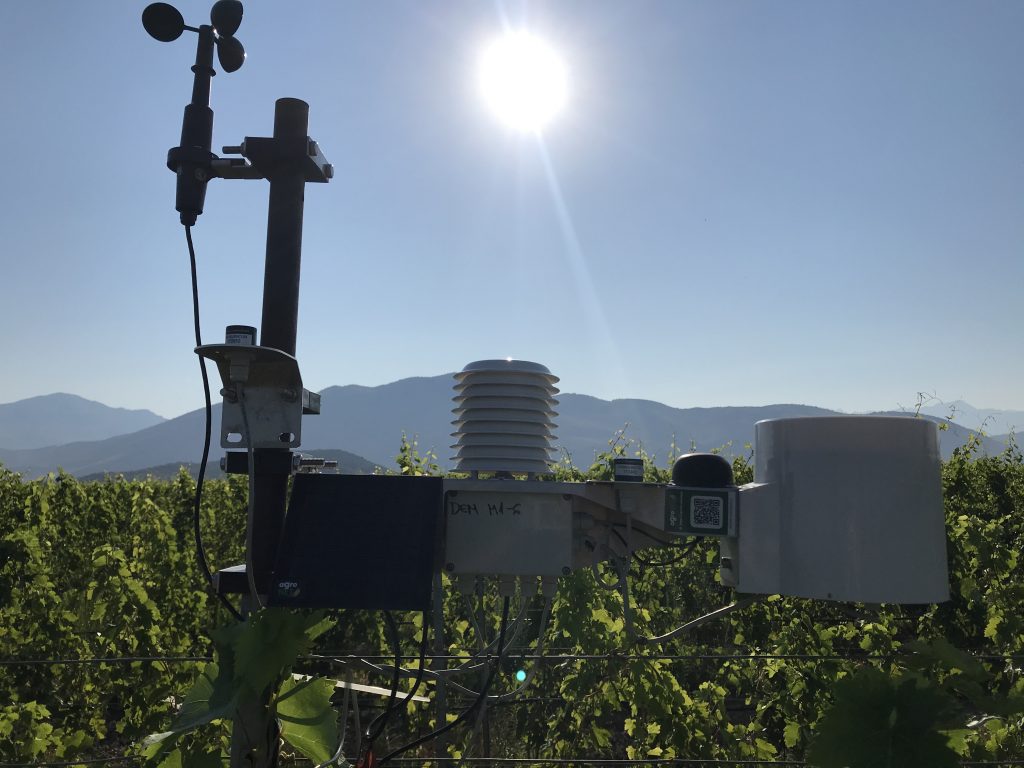
Milena Peruničić and Katarina Pavićević from ’13. jul Plantaže’, one of biggest and most important producers of grapes, wines and grape brandy in South Eastern Europe, talk to us about their experience in DEMETER.
The video in Montenegrin is available below and English subtitles are available by clicking the subtitles/closed captions (CC) option.
- Milena, can you introduce yourself and tell us about your farm?
Good aftenoon, my name is Milena Peruničić and I am working as technologist for plant morphology and physiology in company ’13. jul Plantaže’. The company owns the biggest vineyard in a single complex in Europe, with the surface of 2.310 ha and 10,5 million of grapevines planted, and yearly production of about 22 million kilos of wine and table grapes.
We have recognised the importance of scientific work and research for the development of innovation and competitiveness, and 13. Jul Plantaže nowadays represents a positive example of connection between science and economy. The company is licensed for performing scientific and research activities in the field of agriculture – viticulture, winemaking and fruit growing. As the modern viticulture and winemaking are followed by increased use of new technologies, we also focus our activities toward the application of new technologies in our production.
- How did you get involved in the DEMETER project?
Having on mind that the Development Sector of our company has realized more than 20 national and international projects, under the guidance of prof. dr Vesna Maraš, which were financed by our company and co-financed by different european calls and programs, previous cooperations with national and foreign partners enabled us to join the DEMETER project.
- What technology are you using as part of the DEMETER project?
By digitizing of system, ie using the smart sensors within the project, our company will implement activities aimed for predicting diseases and pests, optimizating the irrigation and transparency of products in the supply chain, ie from orchards and vineyards to the final consumer.
With that in mind, we realized the procurement of equipment which includes: weather station (with sensors for temperature measurements, air humidity, precipitation, leaf moisture, solar radiation, wind speed, photosynthetic activity – PAR quantum, daily evapotranspiration and steam voltage), devices with 3 different types of sensors for monitoring soil moisture, digital traps for monitoring the presence and abundance of pests, as well as the Lora gateway router for receiving and sending data to the network.
- Katarina, can you introduce yourself and explain what have you achieved through using these technologies?
Good afternoon, my name is Katarina Pavićević and I am working as Associate for fruit growing and viticulture in company ’13. jul Plantaže’. Bearing in mind that the equipment was installed in 2020, it is still early to talk about the key benefits of this system. Following the obtained data helped us a lot in making decisions when managing agro-technical operations in the field. With the purchase of meters for flow and water consumption, we will get a complete picture of the benefits of precise irrigation.
- With regard to technology on farm, what are your main concerns?
The soil of Ćemovsko field is skeletal, with over 95% of limestone conglomerates while the remaining 5% is fine soil, so we can say that the vineyards are built more on stone than on the ground, so we have less problems in reading moisture due to air plugs around the sensor. Also, on Ćemovsko field, which is 2310 ha in size and thus represents the largest vineyard in one complex in Europe, we sometimes have network interference. However, continuous work on such projects contributes to problem.
- What do you hope to achieve by participating in the DEMETER project?
The using of precision viticulture technologies, to us as winegrowers and wine producers, greatly helps to manage the variability within the vineyard and the factors that affect the quality and yield of the vine. By using these technologies, we will also reduce production costs. In addition to the benefits which I mentioned, using digital technologies in our business, as well as participation in the DEMETER project enabled us to cooperate with international partners, as well as future cooperation through the implementation of new projects, knowledge transfer and new technologies.
- What advice what you give to other farmers who are considering adopting technologies on their farm?
The introduction of technologies, the using of artificial intelligence, enables easier organization and better information, with undisturbed natural cultivation of plantations. The development of new technologies in agriculture has occurred due to the need for economic food production and environmental protection. That is why I believe that the Fourth Technological Revolution will strongly affect the entire world agriculture, and therefore in the coming decades it will be defined who remains and who does not on the world agricultural scene. That is why I advise all farmers to make their business easier with the benefits of digitalization, and I would like to note that subsidies to producers who are introducing digital technologies have been continuously growing in recent years.


